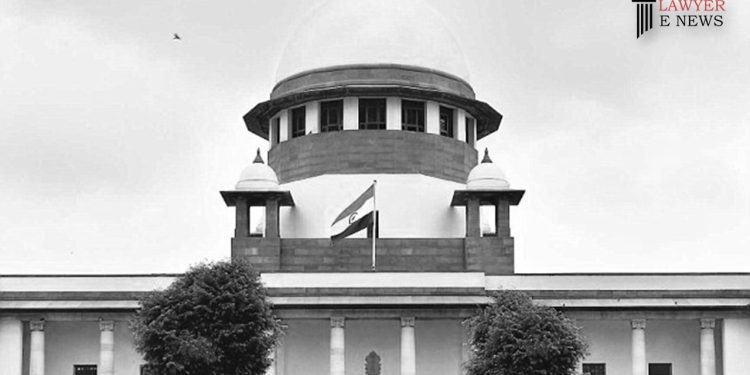-
by Admin
15 February 2026 5:35 AM



In a landmark decision aimed at streamlining the judicial process and enhancing the transparency of the political system, the Supreme Court of India, led by Chief Justice Dr. Dhananjaya Y Chandrachud, has issued a significant judgment concerning the expeditious disposal of criminal cases against elected members of Parliament and Legislative Assemblies. The apex court's decision came in the WRIT PETITION (C) NO. 699 OF 2016 filed by Ashwini Kumar Upadhyay against the Union of India & Anr.
In its judgment dated November 9, 2023, the Supreme Court observed, "The Trial Courts shall not adjourn the cases except for rare and compelling reasons." This directive is part of a broader set of guidelines formulated by the Court to ensure that the trials involving elected representatives are conducted swiftly and effectively. The decision reflects the Court's commitment to upholding the integrity of the legal system and ensuring that justice is not delayed for public figures.
Chief Justice Chandrachud, in his judgment, emphasized the need for prioritizing these cases, stating, "There is a compelling need to make every effort to ensure that these cases are taken up on priority and decided expeditiously." This statement underscores the Court's concern about the impact of prolonged legal proceedings on public faith in democratic institutions and the legal system.
The Supreme Court has directed the High Courts to register a suo-motu case titled "In Re: designated courts for MPs/MLAs" to monitor the early disposal of these cases. The apex court stressed the importance of the High Courts' role in ensuring the effectiveness of these measures under Article 227, which grants them the power of superintendence over district judiciary.
The judgment also highlighted the systemic and institutional challenges in expediting trials and emphasized the vital role of the judiciary and the legal fraternity in addressing these issues. The Court's directive for a comprehensive approach, including the use of technology and witness protection, reflects its holistic view of the judicial process.
This decision is expected to have far-reaching implications on the handling of criminal cases involving politicians, potentially leading to a more accountable and transparent political environment. The judgment, while disposing of the petition concerning the expeditious trial of criminal cases against MPs and MLAs, has also set the stage for the subsequent hearing on the constitutional validity of Section 8 of the Representation of Peoples Act, 1951.
Date of Decision: 9 November 2023
ASHWINI KUMAR UPADHYAY VS UNION OF INDIA & ANR.
